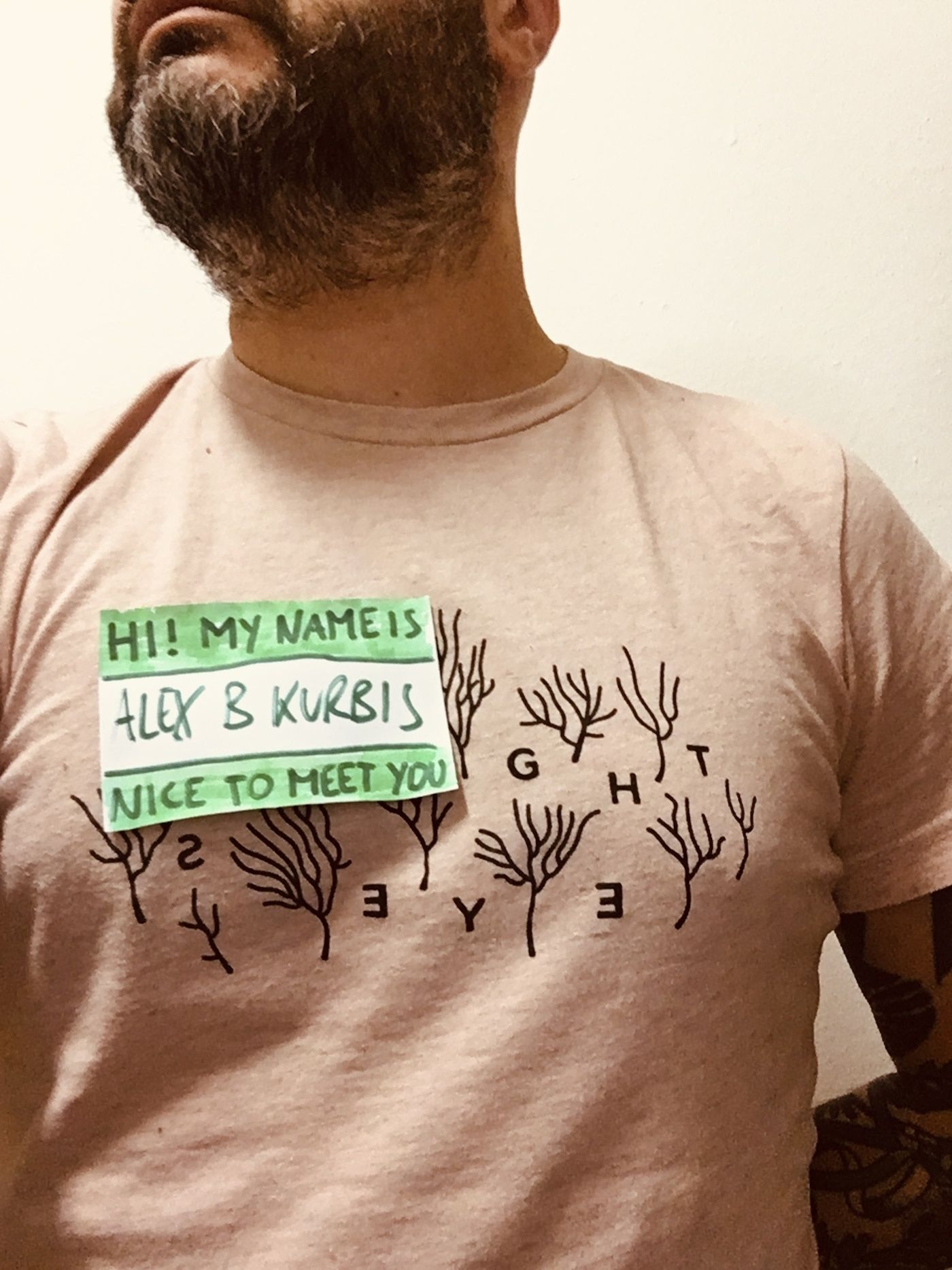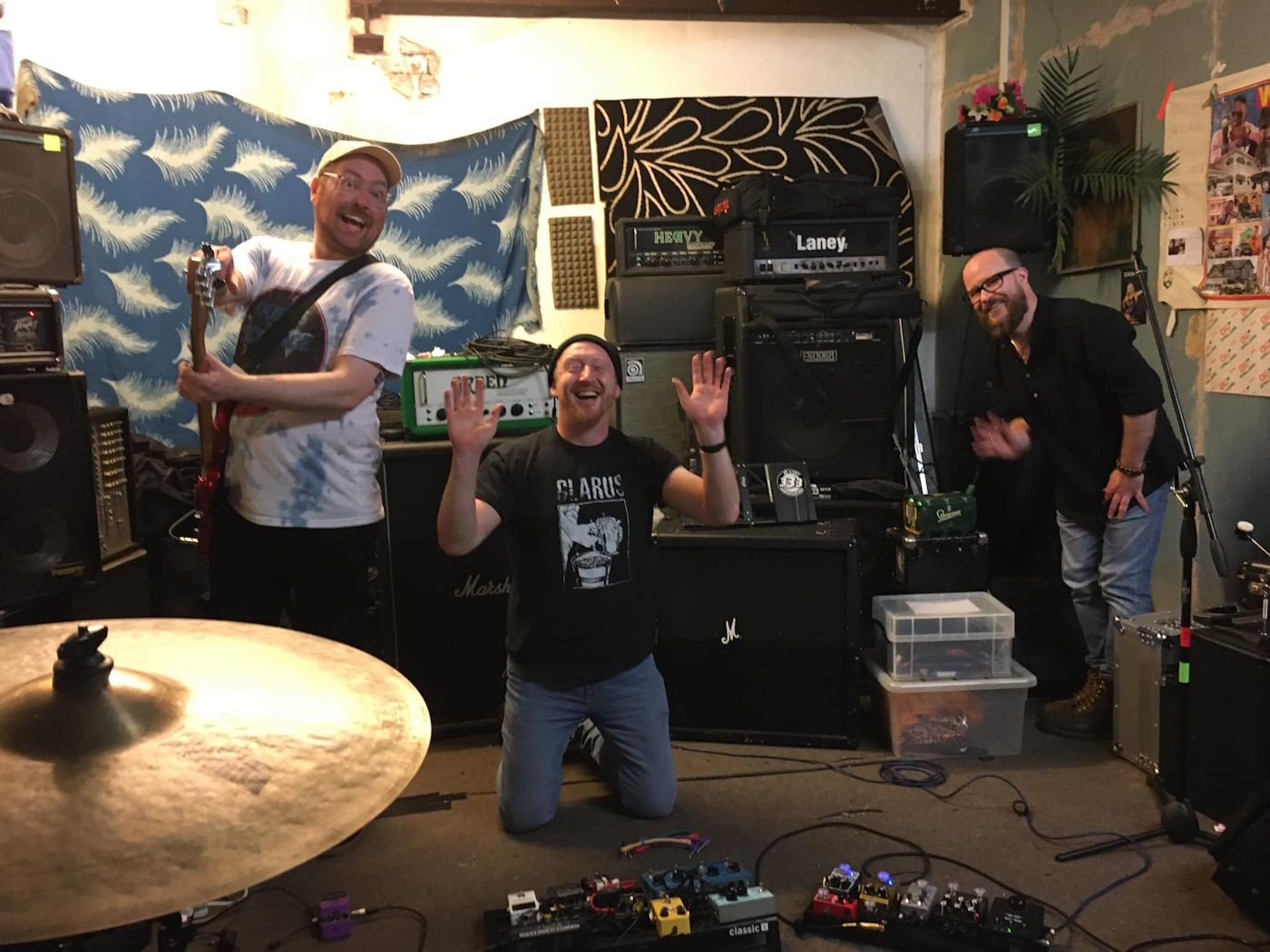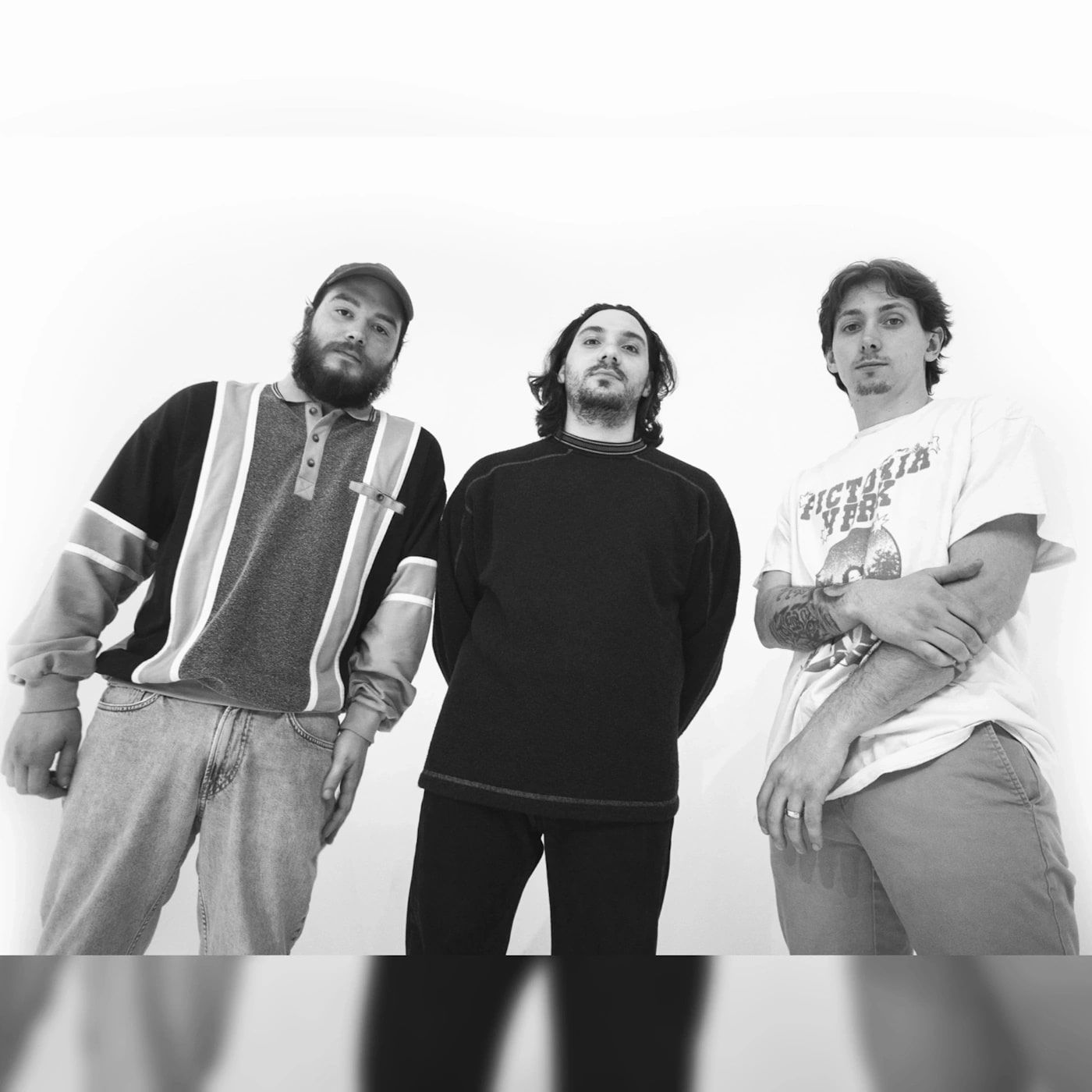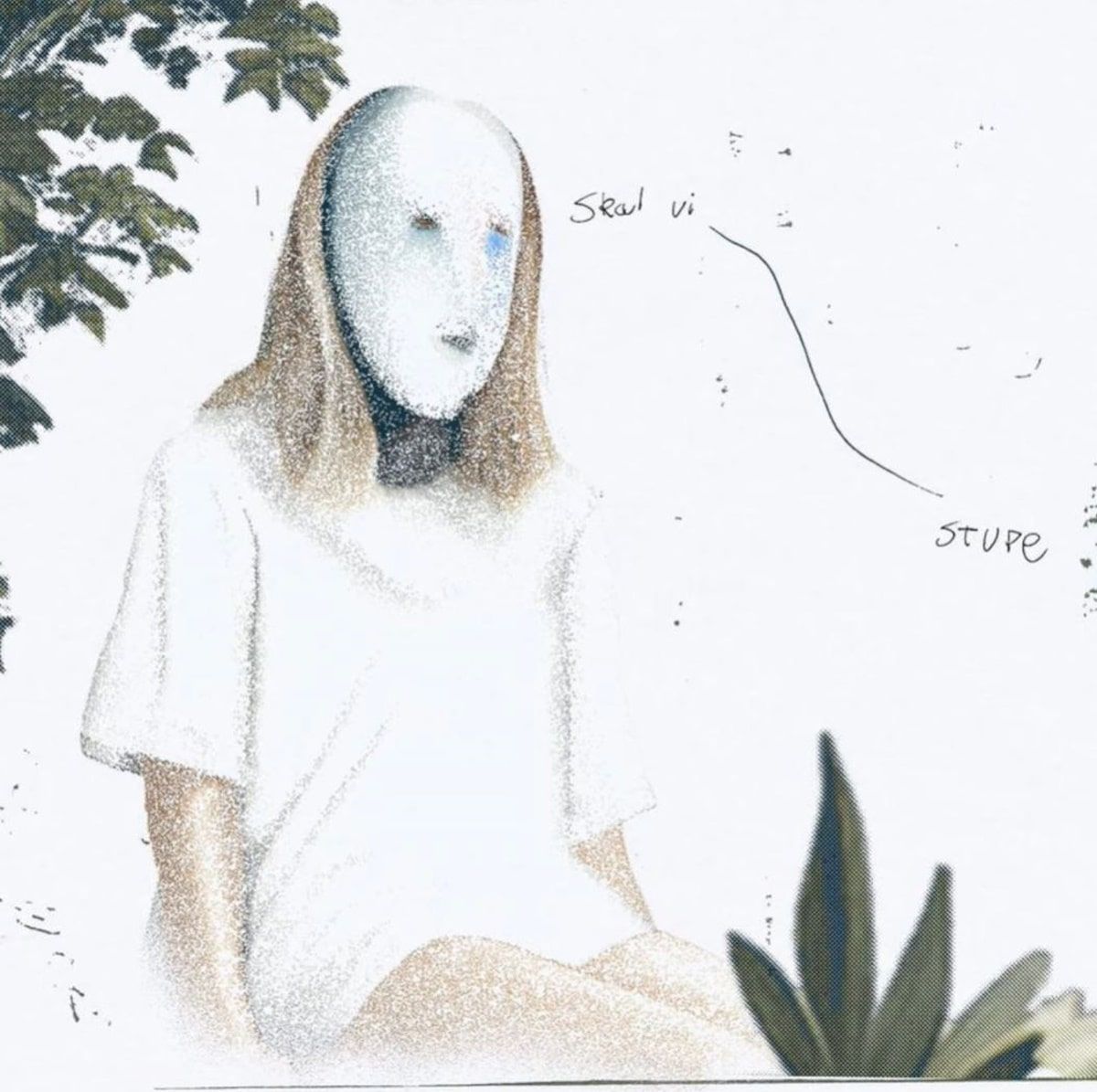Sacha, a multi-talented musician, having rocked stages in Manchester, UK with the likes of Hammers, Big Machine, Glarus, and The Secret from Italy, found himself suddenly transplanted back to his Swiss roots, just before the world tilted on its axis due to the pandemic and the impact of Brexit. Undeterred, Sacha found a silver lining in his own bomb shelter. As the world braced for the unknown, he embraced the echoes of his unique musical past, spun them into an inspired new project, and named it Alex B Kurbis.
Sacha’s musical story is an interesting journey of resilience and creative discovery. He found himself crafting a solo album, playing all the instruments, recording and mixing the tracks himself, before passing them to the adept hands of Joe Caithness for mastering. The resulting record, Mondays & Tuesdays, named for the off-days in his week dedicated to this labour of love, is a surprising and spontaneous exploration of punk rock, emo, and indie genres that would feel right at home amongst bands like Saves the Day. The record is set to release on the 12th of June.
Today, we’ll uncover Sacha’s creative process behind this album, forged during a period of great uncertainty. We’ll dive into the evocative themes that emerged in his lyrics, and discuss how this musical endeavour became a therapeutic journey for him.
We discuss his upcoming UK tour, featuring former bandmates from his Manchester days. These musicians, with their rich, diverse backgrounds, will contribute to the live version of the Alex B Kurbis project, creating a musical experience that promises to be as exceptional as it is authentic.
We’ll also delve into the effect of his changing environment on his creative process and the overall sound of the album, exploring the international influences that shape his work.
Sacha, it’s fascinating how you managed to create an entire punk rock solo album during the pandemic. Can you share more about your creative process and how you found inspiration in such uncertain times?
I’m not sure I can claim it was done during the pandemic, though it definitely was one of the circumstances that made it possible.
I left the UK with my wife and our cats hours before a big lockdown and drove to Switzerland, where I’m from.
I have a house here that I’m lucky enough to own and so the first thing I wanted to do was turn the basement bomb shelter into a studio. So I did and I’m learning to record and mix.
The record itself, I think I started it twice. My friend Mike who played in Glarus with me was doing a collaboration song and asked if I wanted to put vocals on it. I did and it felt like the lyrics came easy and that they were actually quite good.
In September of last year my wife was away in Paris for work and so I had some time do spend downstairs without worrying about the noise I was making. I wrote and recorded a song in a day or two, and so I accidentally started a solo album.
It was mostly very easy from then on. I wanted to have 10 songs for a 30 minutes album and ended up with 11 songs and 33 minutes. I also re-recorded a version of the collaborative song that sort of inspired it all.
View this post on Instagram
You mentioned that some of the subject matter of your songs caught you by surprise. Can you elaborate on the themes that emerged in the album, and how they helped you work through your personal challenges?
Just before I started making Mondays And Tuesdays I was making another record with a friend of mine and the lyrics I was writing were quite funny, at least to me, in a pretty dark way. I also tried to let the music suggest the melodies and words, rather than writing lyrics and trying to fit them to the song.
I found that to be a far more exciting and effective way of working, so I applied it to the Kurbis stuff.
Sometimes the lyrics start with just one word and kinda write themselves.
And when a sentence like “how do you deal with knowing that your days are getting fewer by the day” comes out of you, it might make you sit back and think about where they came from.
There’s a line on the record that is kinda troubling to me. It’s the only reference to the pandemic and it comes half from relief, half from ignorance, it’s insensitive and instinctive and I think it needed to come out. But I’m not sure I’m ok with it. It goes: “a fever burned until it didn’t, predictably fair enough” and my problem with it is that it applies to me, but it doesn’t to a lot of people who were affected by Covid. For me it’s cathartic and comes from relief, but I’m not completely comfortable with it.
There’s a few references to cats on the record, and I’m 100% behind those!
Your project, Alex B Kurbis, explores the intersection of punk rock, emo, and indie music. How do you feel your previous experiences with bands like Hammers, Big Machine, and Glarus have influenced this unique fusion of genres?
When I joined Hammers I wasn’t really familiar with the stuff we were playing. It was essentially a Tragedy band. Through the years I think we really got to write some excellent and personal music that fused a few different styles together. I got very comfortable writing music with Nick, our drummer, to the point that when we started Big Machine we wrote 7 songs in a weekend and recorded them like a month later. We did 3 records like that, and I think they are really great. That spontaneity stayed with me and it really came out while doing the Kurbis record.
I’ve always loved emo bands that had a punk rock approach, like Saves The Day and Pop Unknown and I guess these were the right circumstances to let that sort of music out. It’s the first record I made that I can listen to and enjoy without (too many) regrets.
Many artists struggle with imposter syndrome and the fear of rejection. How have you navigated these feelings throughout your music career, and what advice would you give to other musicians experiencing similar emotions?
One problem for me is that I tend to compare my stuff to the bands that inspire me and they normally have gone through a few records before getting to the point of being actually great, so it’s an uneven comparison.
There’s a couple of songs on the record that to me seem a bit weaker than the others, but I try not to worry about it too much, because that’s quite a normal thing to happen on records. And it’s gonna be different for different listeners too.
I don’t know if I’m the best person to give advice, but my suggestion would be to love what you make, try to improve what you made that you don’t love, and forget about what you hate until you can look back at it in a bigger context. And carry on regardless.
The upcoming UK tour will feature your former bandmates from Manchester, who have played in a variety of bands themselves. How do you think their diverse musical backgrounds will contribute to the live version of your project?
I’ve known those guys for some time now, and they’ve always gone out their way to help me bring my somewhat confusing vision to life. In Glarus everything was very regimented and written out. It was quite serious music that needed, I felt, to be done in a precise way.
They were very surprised to hear me say that for the Kurbis stuff there would be room for their individual expression! I am genuinely excited to start playing shows with them. They are my best friends and cheerleaders and I was missing them a lot. Also, Kurbis is about fun and I’m determined for us to have a lot of it!
Since moving back to Switzerland and working on your music in a bomb shelter, how has the change in environment affected your creative process and the overall sound of the album?
The freedom of having a home recording studio, even as rudimentary as mine, is such a luxury. I wish I had the chance of working like this from the start.
I am very lazy by nature and so a drum kit downstairs is a lot more appealing than a drum kit in a practice room somewhere I need to drive to.
Being able to work part time is a massive privilege as well, that gives me time to be working on music. Mondays And Tuesdays were my days off at my previous job, hence the album title.
As for the sound of the album, that’s me trying to learn how to record and mix. I’m probably never going to ask an actual engineer what they think of it, because I’m sure its a technical nightmare. But to me it sounds close to what I like to listen to, and I’m recording an EP next, that hopefully will be an improvement on the album.
As an artist with an international background, how have your experiences in Italy, the UK, and Switzerland shaped your musical style and the themes you explore in your work?
I’m very thankful for all the opportunities I was given when playing gigs and touring. Especially with Hammers I got to tour a lot and played with some of my favourite bands. If paying attention, there’s a lot to learn from watching other people play. There’s so many tricks and shortcuts to making and playing music. Where I live now is a bit out of the normal touring routes, so there’s not much exposure to touring bands and different scenes outside of the internet. And it’s not the same.
Finally, what are your aspirations for the Alex B Kurbis project, and how do you hope to continue evolving as an artist in the coming years?
I’m hoping to have an EP out later in the year, then do 1 album and 1 ep every year for a total of 4 albums, as that is the maximum amount of good records any band can make (with very few exceptions).
Jokes aside, I really want to take this music out on tour. We’re looking to do a Swiss run of shows later in the year and then next year go out for longer runs. It’s all super DIY so who knows what’ll happen. Everyone I talk to says the pandemic and Brexit hit touring bands quite hard. But we have very low expectations and never really aspired to sleep more comfortably than on bathroom floors, so we’ll be alright.











